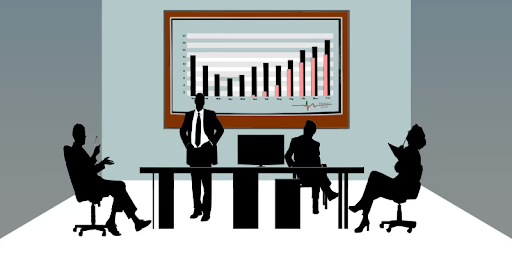Dear Em: Strategies to Expand A New Zealand Non-Profit Supporting Sexual Assault Survivors
By Maddelynn Brooks, Yuyuan Huang, Branden Kim, Reia Lee, Lauren Lee, and Eric Xu, Brown University
There is an urgent need for support systems for those affected by sexual violence. According to the Ministry of Justice in New Zealand, 23% of individuals in New Zealand have experienced some form of sexual violence. Dear Em is an organization committed to providing support, guidance, and resources for survivors of sexual violence and supporters in New Zealand. Based in Auckland, the organization’s mission is to create a safe environment for young survivors, promoting healing and resilience through mental health services, educational programs, and advocacy. The organization currently uses a mentor program that partners older, more experienced women with younger survivors and supporters of sexual violence to create a supportive, growth-focused environment. As the need for support services grows, it becomes crucial to explore how Dear Em can expand its mentor program. Currently, as a locally sourced volunteer network, Dear Em needs to be structured in a way that leverages existing resources while ensuring it can grow sustainably and effectively. This article outlines a strategic approach to expand Dear Em’s mentor program and utilize younger volunteer mentors to strengthen and broaden the reach of the program while maintaining Dear Em’s core values.
Improving Mentor Training
Currently, interested volunteers at Dear Em can take on roles as coordinators or mentors. Coordinators lead and guide the organization, while mentors form individual relationships with sexual assault survivors and other people interested in receiving support from Dear Em to guide them toward more mental health support, resources for further learning, and future planning for recovering survivors. Coordinators at Dear Em are overburdened with both their work and tasks that are meant for mentors. To address this, Dear Em could continue building on its current volunteer structure by establishing more specific roles within the coordinator/mentor structure such as peer mentors, outreach coordinators, training facilitators, and social media managers. This delegation would reduce the amount of work coordinators need to do and define more specific tasks for current/future mentors, improving the efficiency of the mentor program.
A structured monthly mentor training program could also help volunteers engage in meaningful outreach to those needing supportive conversations and guidance, starting within Auckland. Meeting with the mentors monthly would keep the mentors up to date on the best practices and encourage them to be more engaged. Focusing the monthly mentorship training program on conducting workshops and discussions at schools and community groups can help Dear Em increase its visibility and facilitate supportive conversations in public spaces in a more structured, scalable manner. Mentor training can cover different areas such as trauma-informed care, recovery-oriented strategies, and active listening to ensure mentors are well-prepared to support their mentees effectively. Additionally, tasks currently managed by Dear Em’s leadership team should be delegated to more experienced mentors. By establishing a small leadership team of four to five experienced mentors to oversee specific areas—such as social media, curriculum development, and community outreach—the program can create a stronger and more sustainable support system, streamlining day-to-day operations. This strategy would allow for growth from two levels of organization rather than one, thus making the program easier to scale. By clearly defining roles and delegating tasks, the organization can operate more efficiently, ensuring that strategic goals and day-to-day operations are effectively managed.
New Strategies to Recruit Mentors and Volunteers
To improve Dear Em’s existing mentor program and outreach efforts, the organization must utilize youth mentor and volunteer support to enable program growth and expand its services to young people. Youth engagement and youth-led initiatives have become especially important for advocacy efforts in recent years, as younger mentors have a better understanding of current trends and can better relate to the challenges their peers face. To effectively expand its youth services, Dear Em can focus on the three main pillars of successful outreach initiatives: conversation, education, and access. These goals can be achieved through supporting education efforts by partnering with local schools and universities to increase advocacy and support. For example, the organization could consider starting club chapters at the University of Auckland to facilitate conversation or make distributional pamphlets for local middle and high schools to educate younger students. These chapters could host regular meetings where students discuss issues related to sexual violence, as well as organize workshops where guest speakers are invited to talk about their experiences as mental health professionals or sexual violence survivors. Chapters can also organize fundraising events to support Dear Em’s programs to spread awareness further. Providing more resources on women’s health could help younger people feel more empowered to utilize the resources available to them and become more educated on their bodily autonomy. Such resources could include educational materials like guides on menstruation and sexual health. Partnering with local healthcare professionals to create and share these resources would add credibility to ensure the information presented is accurate. These youth-focused growth strategies would allow Dear Em to reach a greater audience and raise awareness around women’s health and sexual assault for a younger audience.
Mental Health-Oriented Legislative Focus
Taking into consideration the current political climate of New Zealand, the conservative parliament’s focus on mental health could benefit Dear Em if refocused as a mental health initiative prioritizing youth well-being, helping gain support for sexual assault legislation in New Zealand while growing Dear Em’s importance in the mental health sector. Emphasizing Dear Em’s impact on mental health to the New Zealand government would highlight the program’s core values to a broader legislative audience while ensuring continued growth and change within the country. This alignment with broader mental health priorities creates an opportunity for Dear Em to form partnerships with organizations such as advocacy groups, educational institutions, and government agencies to provide financial resources to survivors, expand the program’s reach, and strengthen its impact for people seeking mental health and sexual assault support across New Zealand, ensuring long-term sustainability. By aligning with country-wide mental health priorities, Dear Em can create a network of support that strengthens the engagement and information it provides to all New Zealanders.
Improving Social Media/Website Content
Dear Em’s social media content does not always consistently reflect its role as a sexual violence awareness organization. While their intention to not center every post around sexual violence is understandable, more of their content should visibly reinforce their mission. Incorporating posts with surprising statistics, survivor resources, and educational content can help balance Dear Em’s goal of raising awareness while also keeping a neutral nuance to sexual assault education. Regular posting is also essential for increased media engagement. Dear Em should post Stories via Instagram daily and post three to five times a week. Engaging formats like reels or TikToks also offer another way to increase visibility and interaction, especially among young people.
Dear Em’s website also lacks structural clarity and organization, making their online content slightly inaccessible and difficult for readers to digest. Updating the site to include clear sections for resources and events would enhance user experience and make sharing the website more accessible for younger generations. We suggest that Dear Em focus on streamlining its website and social media pages by focusing more on a single topic on each page to better align with the specific goals of the organization.
Furthermore, Dear Em should encourage mentors who are survivors to share their experiences, creating impactful narratives for outreach, while mentors who are not survivors can continue to collaborate with those willing to share their stories. These personal testimonies offer stronger opportunities for emotional connection with survivors, fostering a sense of relatability and empathy that will help Dear Em’s mission resonate more deeply within the community. These testimonies can be saved for longer videos on platforms such as Youtube, ensuring their weighty message is not diluted, while survivors who have received help from Dear Em can help produce impactful yet quick videos that address common issues and provide quick tips via short-form content to share on social media platforms like TikTok and Instagram. For instance, if a college student made a video about the mental health networks and monthly get-together programs offered by Dear Em, their content could help promote Dear Em and its mission for younger audiences more effectively.
Conclusion
Dear Em can better address its mission with the aid of a reformed mentorship program, stronger emphasis on youth engagement, and a streamlined online presence, bringing attention to the formation of a diverse, focused, community-oriented organization that emphasizes community support. By focusing current resources on student and youth recruitment through additional educational programs, Dear Em can more effectively grow its impact, allowing the organization to reach more youth across New Zealand. With careful planning and dedication to its mission, Dear Em is well-positioned to grow sustainably and provide meaningful support to those in need while also continuing to foster a compassionate and empowered community in Auckland and beyond.














